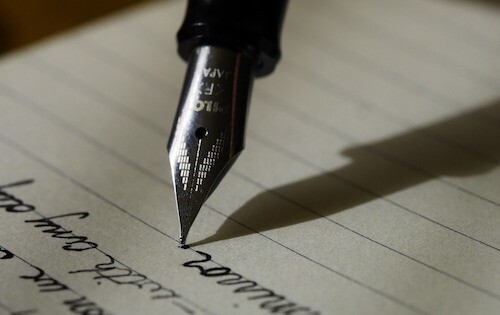Column: The miseducation of a science writer

A poster session at the 2014 fall meeting of the American Geophysical Union.
NASA Ames
In the winter of 2002, during my third year of grad school, I took a class that was ostensibly on “advanced experimental techniques.” For two and a half months, we spent our days doing canned teaching labs on early 20th-century physics concepts such as Compton scattering and electron paramagnetic resonance. Some of the lab equipment was so ancient that it wasn’t even computerized—data curves were drawn mechanically onto sheets of paper, and we had to photocopy them into our lab reports.
None of us wanted to be there. My classmates in theoretical physics had no use for experimental techniques, and my fellow experimentalists and I were doing far more sophisticated experiments every day in our research. But whoever designed the physics graduate curriculum had decided that this would be a required class, so there we were.
As the weeks wore on, I realized something: The professors in charge of the class—there were two of them—didn’t want to be there either. They wanted to get through the experience on the path of least resistance, just as we did. They didn’t want to have to question our mastery of experimental techniques that were older than we were, because that would take work. The default grade in this class was going to be an A, unless we somehow showed clearly and compellingly that we didn’t understand the material.

Miller’s Diary
Physics Today editor Johanna Miller reflects on the latest Search & Discovery section of the magazine, the editorial process, and life in general.
So I settled on a strategy. I wrote lab reports so long and convoluted that the professors wouldn’t read them. The salient information was all there, but it was buried under a mountain of as many irrelevant details as I could think of. My goal was for the professors to skim my reports, assume I knew what I was talking about, give me a good grade, and not ask me any questions that I didn’t know how to answer. I succeeded.
It wasn’t quite as blatant or deliberate, but I’m sure the papers, talks, and posters I composed to communicate my research suffered from the same perverse incentives. If I explained my results too clearly, I might invite hard questions from someone who disagreed with my reasoning. If I made my work look too exciting, I might attract attention and competition that I wasn’t sure I knew how to handle. And if I made it look too easy, I risked undermining what was for five years my raison d’être.
Of course, this isn’t how science is supposed to work. Science is supposed to be about the free and unimpeded exchange of ideas. If there’s a mistake in your work, you should want somebody to find it. If someone else knows a better way to do what you’ve been trying to do, you should want them to pursue it. You should want the wheat to separate from the chaff and the chaff to be discarded, even if the chaff is you.
But science is done by imperfect human beings. Much if not most science, I dare say, is done by insecure grad students. And sometimes short-term selfish interests win out over noble ideals.
In my years at Physics Today, I’ve worked hard to unlearn those old bad habits, and I’ve thought a lot about how to make the stories I write as broadly accessible as I can. For scientists, writing clearly about science is challenging for many reasons—so much of the subject matter, for example, just doesn’t mesh very well either with intuition or with the English language. For science writers, those challenges are compounded, because we’re writing for readers who lack a common field-specific knowledge and vocabulary. We need to construct more of the conceptual framework from scratch, and we have fewer tools with which to do it.
But I wonder how much of the problem is the subconscious fear of being too easily understood.
More about the authors
Johanna L. Miller, jmiller@aip.org



